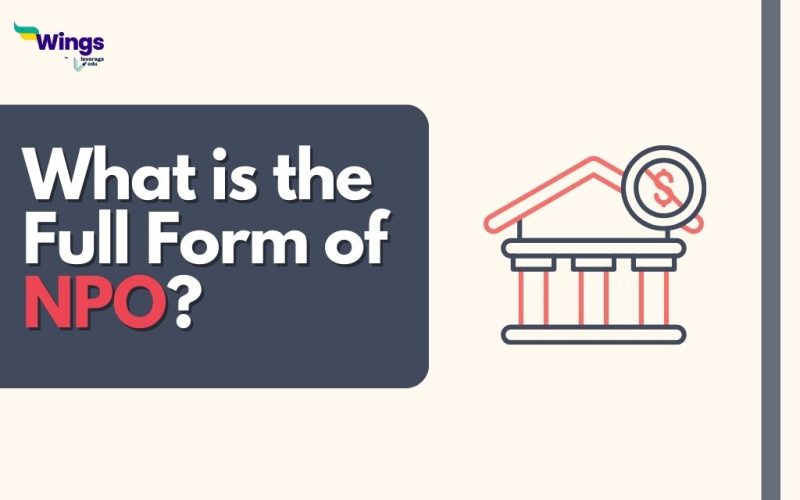The full form of NPO is Non-profit Organisation. It is a legal entity established and operated for the collective benefit of the public or society. These organisations cannot distribute surplus funds to other parties but must utilise them to advance their mission. Nonprofits include various types like political groups, educational institutions, professional associations, religious organisations, social clubs, and consumer cooperatives. They need government approval to be tax-exempt, and some may qualify for tax-deductible donations, but incorporation as a nonprofit is possible even without tax-exempt status.
Also Read: What is the Full Form of NGO?
Qualification for NPO Status
Table of Contents
To qualify for an NPO, an organisation must meet certain criteria, which are mentioned below:
- NPO status is granted to entities working for cruelty prevention, religious, public safety, educational charitable, and literary causes. Common examples of NPOs include churches, hospitals, foundations, charities, and universities.
- To get an NPO status, an organisation must offer goods and services to serve the common public. In addition, these entities are required to take operating and financial information public. The disclosure is mandated so that donors are aware of the expenditure of their contributions.
- Furthermore, in India, for a nonprofit organisation to obtain tax exemption, it must apply for 501(c)(3) status with the IRS. Once approved and operational, the organisation must adhere to the regulations set by the relevant state agency overseeing charitable organisations. This typically involves having a dedicated Chief Information Officer (CIO) and accounting team to ensure compliance.
Funding Sources for NPO
Non-profit organisations receive donations from multiple sources. Here are the common sources of NPO funding or income:
- Grants from government agencies, foundations, and corporations
- Individual donations
- Events like charity, galas, and auctions
- Corporate gifts in the form of money, services, or goods
- Donations in-kind like professional services, equipment, or office supplies
Advantages of NPO
Here are some of the advantages of NPO:
- Non-profit organisations focus on addressing social, environmental, or community issues without the primary motive of profit. They can channel resources towards meaningful causes, promoting positive change and making a difference in people’s lives.
- Furthermore, these organisations often qualify for tax-exempt status, allowing them to receive donations and grants without paying taxes on the funds. This enables them to allocate more resources directly to their mission and enhances their financial sustainability.
- Additionally, NPOs provide opportunities for individuals to contribute their time and skills through volunteering. This active involvement of volunteers fosters a sense of community and creates a dedicated network of people passionate about the organisation’s goals.
Challenges of NPO
Non-profit organisations often face numerous challenges, which are as follows:
- These entities heavily rely on donations, grants, and fundraising efforts to sustain their operations. Maintaining a stable and consistent flow of funding can be challenging, especially during economic downturns or in competitive fundraising environments.
- Besides, non-profits often face resource constraints, including limited staff, infrastructure, and technology. Operating with fewer resources can impact their ability to scale their impact or expand their reach to effectively address the issues they aim to tackle.
- Moreover, balancing the interests and expectations of various stakeholders, such as donors, volunteers, beneficiaries, and board members, can be complex. Conflicting priorities and differing opinions may arise, requiring careful communication and strategic decision-making to maintain trust and cohesion within the organisation.
Also Read: What are Human Rights?
This was all about NPO full form. Visit our Full Form Page to discover more intriguing articles about full forms. You can also check out the consolidated 300+ full forms list!
 One app for all your study abroad needs
One app for all your study abroad needs













